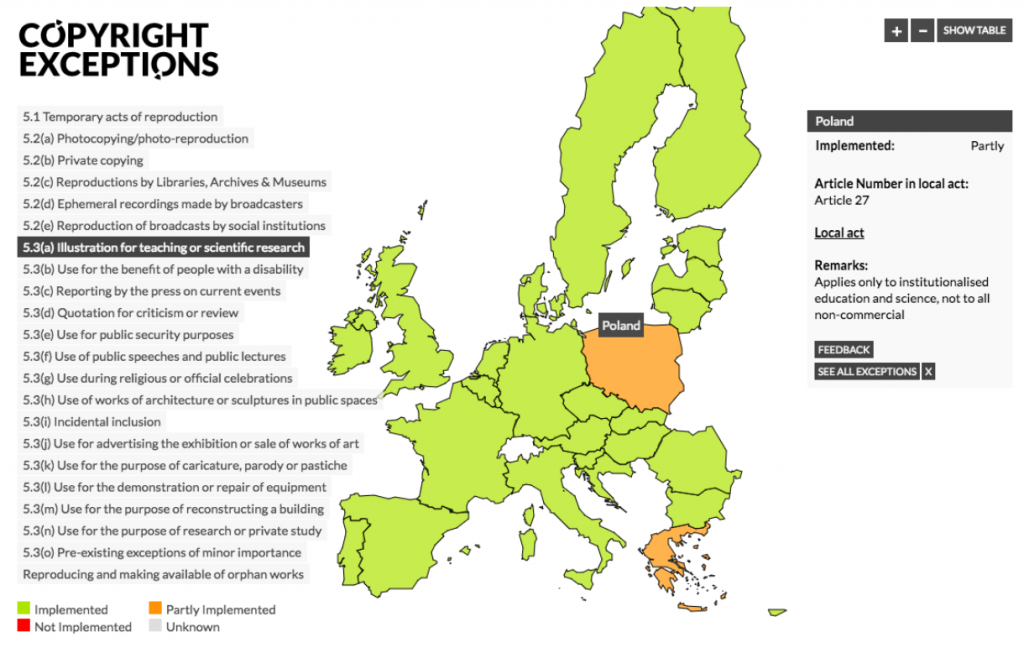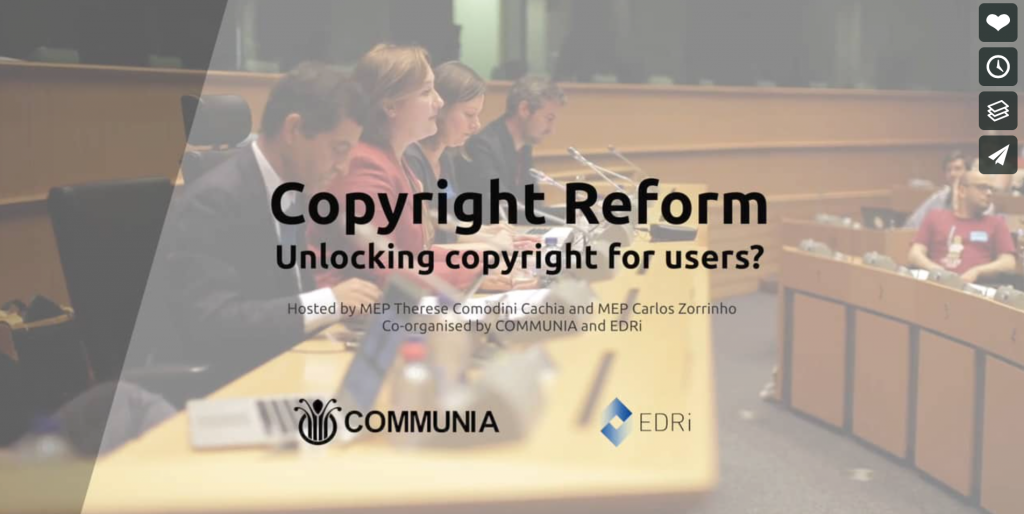New © reform proposal: we need to get a better copyright for education
In this new post, Lisette Kalshoven presents an interesting overview on the current issues of the copyright reform.
Open Education and copyright reform advocates are in this together: we both aim to give educators the flexibility to improve on the teaching materials they use, increasing access to quality education for to those who don’t necessarily have the funds, and to give teachers the ability to enjoy the advantages of modern technology without breaking the law. As Alek Tarkowski wrote last year: we are two sides of the same coin. COMMUNIA, which advocates for policies that expand the public domain and increase access to and reuse of culture and knowledge, asked copyright policy experts from civil society organisations like Wikimedia and Creative Commons on why the current copyright reform needs our input:
My side of the coin, the one arguing for copyright reform for education, has gotten some interesting news. Last Wednesday the European Commission presented its plan for a copyright reform. While the legislative process is far from over, what is in this proposal is worrying and can affect the daily practice of educators across the EU.
What the problem is with copyright for education now
The Commission is proposing changes to the EU copyright framework because it is outdated. The last major change to the copyright law is from 2001. In the years following the directive Member States implemented the directive specifically to their jurisdictions, creating a patchwork of different laws across the EU, including the possible implementation of an exception for education.
While most member states implemented the optional education exception (see the CopyrightExceptions.eu database) it does not mean we can easily share teaching materials across borders, as all implementations vary. There are some pretty outrageous things that teachers cannot do, for example: Finnish copyright law has no exceptions for creating derivative works in education. So creating translations from foreign language news sites is not allowed.
The 2001 implementations of the education exception often left European educators with a pre-digital copyright. The EC heard our call for a more harmonised and modern copyright for education and proposed changes. Unfortunately, they are making it even more untransparent for educators what they can do legally.

Copyright exceptions
What is in the proposal
In short (and you can read more about it here) the Commission is choosing to not harmonise the existing exception we have in Europe, but adding a new mandatory exception:
- It only applies to digital resources and online environments, leaving unharmonized most of the face-to-face teaching activities, and also distance learning activities that are developed offline;
- It only benefits educational establishments, which means that online and digital uses made by teachers and students not affiliated with educational establishments will not be exempted;
- In the classroom it only covers digital uses (e.g. whiteboards), and the online uses covered can only be made under the closed networks run by the educational establishments (e.g. intranet). Online uses in the open internet, namely uses of protected works in OERs and in MOOCs, will not be covered by the exception.
How the ‘old’ exception and this proposed new one will interact is unclear and will likely be confusing for teachers.
As a last note, which is in my opinion the most worrying about the Commission’s proposal for education: the override of the exception if an ‘adequate’ license exists. This is a rule that in practice makes the exception powerless as a tool for supporting education.
In short, this proposal is simply not good enough to support education in Europe. We need a better copyright reform for education.
What we are doing to help to keep copyright out of the classroom
As COMMUNIA we are launching a project called Copyright Reform for Education. In this project we are doing legal research to understand current exceptions better; we are asking innovative teachers about modern teaching methods – making sure we understand what a new copyright for education should account for; we are also raising awareness as much as we can, by likely doing a public campaign in the Spring of next year. We are aiming at bringing stakeholders in European education together, advocating for an effective change it copyright. Why? To make sure teachers can focus on what they are good at: teaching.
Don’t be a stranger
If you would like to know more about why copyright reform is important for educators across Europe and beyond: please have a look at the COMMUNIA Copyright Untangled series on Medium. If you are curious on the legislative process and what is happening in Brussels around copyright that affects you: please follow the COMMUNIA blog and/or on Facebook and Twitter.
If you have questions about the Copyright Reform for Education project, please contact me at lk@kl.nl. We are curious about your thoughts on the matter. If you would like to receive (sporadic) updates about the project, please also drop me a line. We will make sure you are in the loop.
—
About the author
 Lisette Kalshoven is copyright policy advisor at Kennisland and COMMUNIA in the areas of copyright, heritage and open education. She combines writing policy documents with practical interventions and training sessions for professionals. Creating access to information is always the reference point in her work.
Lisette Kalshoven is copyright policy advisor at Kennisland and COMMUNIA in the areas of copyright, heritage and open education. She combines writing policy documents with practical interventions and training sessions for professionals. Creating access to information is always the reference point in her work.
 Open Education Working Group
Open Education Working Group 




Leave a Reply